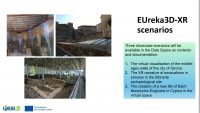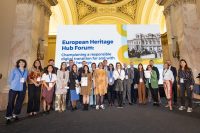The term ‘authenticity’ can be used to describe a thing, including heritage objects, an experience, or a person. In all instances the term conjures up notions of originality, truth and sincerity, or a quality of being real as opposed to being fake. For example, we can speak about ‘an authentic tourist experience’ or about ‘the authentic self’ or ‘an authentic painting’. The notion of ‘authenticity’ has had a long history within the social sciences and humanities and is still commonly used in everyday life. Earlier definitions of authenticity eschewed ideas of commodification, placing greater emphasis on ideas of tradition. An object, for example an artefact in a museum, was deemed authentic if it was made by a traditional artist to serve a traditional function. Objects made for the consumer or tourist were deemed inauthentic. Such definitions have however come under significant criticism in recent years with some critics pointing out the socially-constructed nature of authenticity. Authenticity, in this sense, is negotiable. Such criticisms have led to the development of new ways of thinking about what is authentic, giving rise to terms such as ‘staged authenticity’, used, for example, to describe touristic experiences of particular cultural practices.
-
Join the
Digital Meets Culture
Newsletter! -
Join the
Digital Meets Culture
Open Newsroom! If you have interesting news and events to point out in the field of digital cultural heritage, we are waiting for your contribution.
If you have interesting news and events to point out in the field of digital cultural heritage, we are waiting for your contribution.
-
Free text
-
-
Upcoming events
-
 The kick-off for the new project, continuation of the successful EUreka3D, is organized in Pisa by coordinator Photoconsoritum on 26-27 February 2025
The kick-off for the new project, continuation of the successful EUreka3D, is organized in Pisa by coordinator Photoconsoritum on 26-27 February 2025EUreka3D-XR – European Union’s REKonstructed content in 3D to produce XR experiences EUreka3D-XR is the continuation project of EUreka3D, funded by the Digital Europe Programme of the European Union, to develop innovative re-use scenarios and tools that enable the creation … Continue reading →
 Siena (Italy), 8-13 September 2025
Siena (Italy), 8-13 September 2025 As the leading global event on digital technology for documenting, conserving, and sharing heritage—from landscapes and monuments to museums, collections, and intangible traditions—the Digital Heritage International Congress offers a unified stage for major world conferences, workshops, and exhibitions. … Continue reading →



































